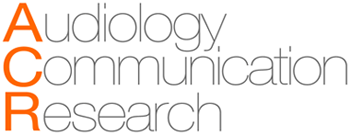ABSTRACT
Purpose
Investigate the effects of bilingualism on the speed and accuracy of access to the mental lexicon, according to the time of exposure to the second language, in students of the first years of elementary school.
Methods
Eighty-three children between six and eight years old (M = 6.8y, SD = 0.72), in the first two years of elementary school in private schools with matching curricula, were assessed: bilingual (Portuguese/English), monolingual (Portuguese). Teachers indicated that they did not present sensory, motor, neurological, or psychiatric problems. Participants had Brazilian Portuguese (L1) as their native language and were grouped by school and grade (1st and 2nd). Bilingual Groups (BG: schoolchildren with at least two years of exposure to English; N = 44, 57% girls) and Monolingual Groups (MG: N = 40, 52.5% girls) were considered. A Rapid Automatized Naming task was used to evaluate the speed and accuracy of access to the mental lexicon. BG was evaluated in Portuguese and English (01 month interval); MG, in Portuguese. A MANOVA was conducted, and Wilks lambda (l) used to verify the effect of each variable (significance level: p <0.05).
Results
The paired samples (c2 (1) = 0.310, p = 0.577) showed a general effect for group and grade (L1 or L2) for speed and accuracy. Differences in speed were observed between MG and BG for L2.
Conclusion
L2 exposure did not interfere with the speed or accuracy in rapid naming of L1 in BG. School progression had a positive influence on both groups.
Keywords:
Language development; Multilingualism; Cognition; Child; Automatism

 Thumbnail
Thumbnail
 Subtitle: BGL1 = Bilingual group assessed in Portuguese; BGL2 = Bilingual Group assessed in English, MG = Monolingual group.
Subtitle: BGL1 = Bilingual group assessed in Portuguese; BGL2 = Bilingual Group assessed in English, MG = Monolingual group.